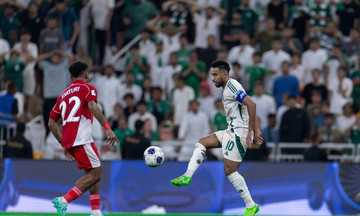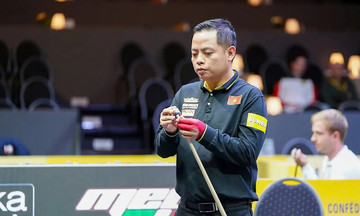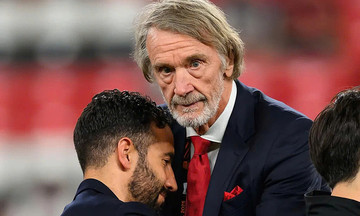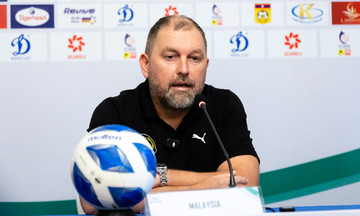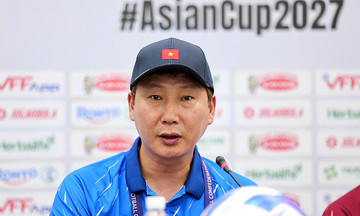"Fernandes has to play number 10, there's no question about it. He needs to be free in his position instead of playing deeper and thinking more about defending," Scholes told Sky Sports on 15/9.
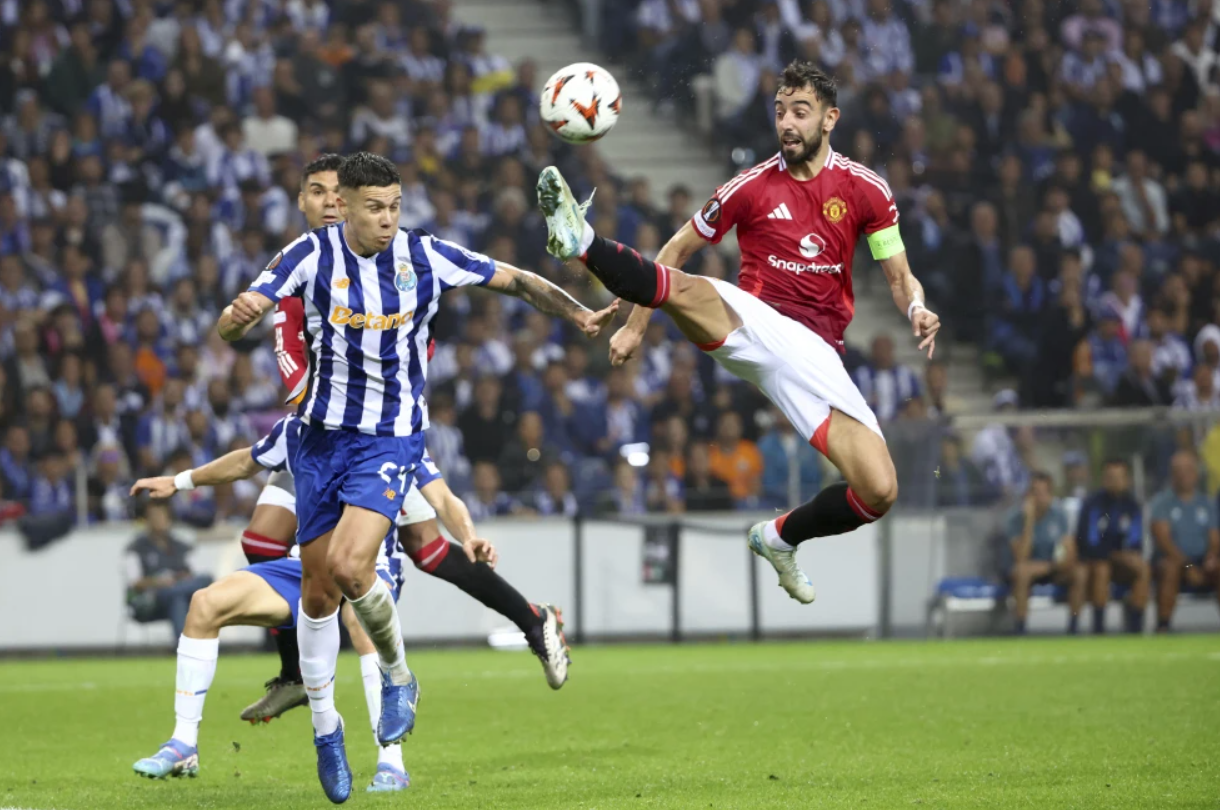 |
Bruno Fernandes (in red) during Man Utd's Europa League match against Porto at Dragao Stadium in Porto, Portugal on 3/10/2024. Photo: AP |
Under fellow countryman Ruben Amorim's 3-4-3 system, Fernandes often partners with a more defensive-minded midfielder like Casemiro or Manuel Ugarte. Meanwhile, the two players behind the striker are typically known for their pace. This position is currently occupied by players like Bryan Mbeumo, Matheus Cunha, Amad Diallo, or, last season, Marcus Rashford and Alejandro Garnacho.
According to Scholes, it's understandable to temporarily deploy an attacking midfielder like Fernandes in a deeper, unfamiliar role due to squad limitations, but this shouldn't be a long-term solution. If Fernandes is forced to play this way for too long, he will lose his enthusiasm and creativity.
"I've experienced both roles. When you play number 10, you only think about attacking, creating chances, and scoring goals. But when you drop deeper, you have to think about defending, about marking, and it's a completely different mindset," the former England midfielder explained.
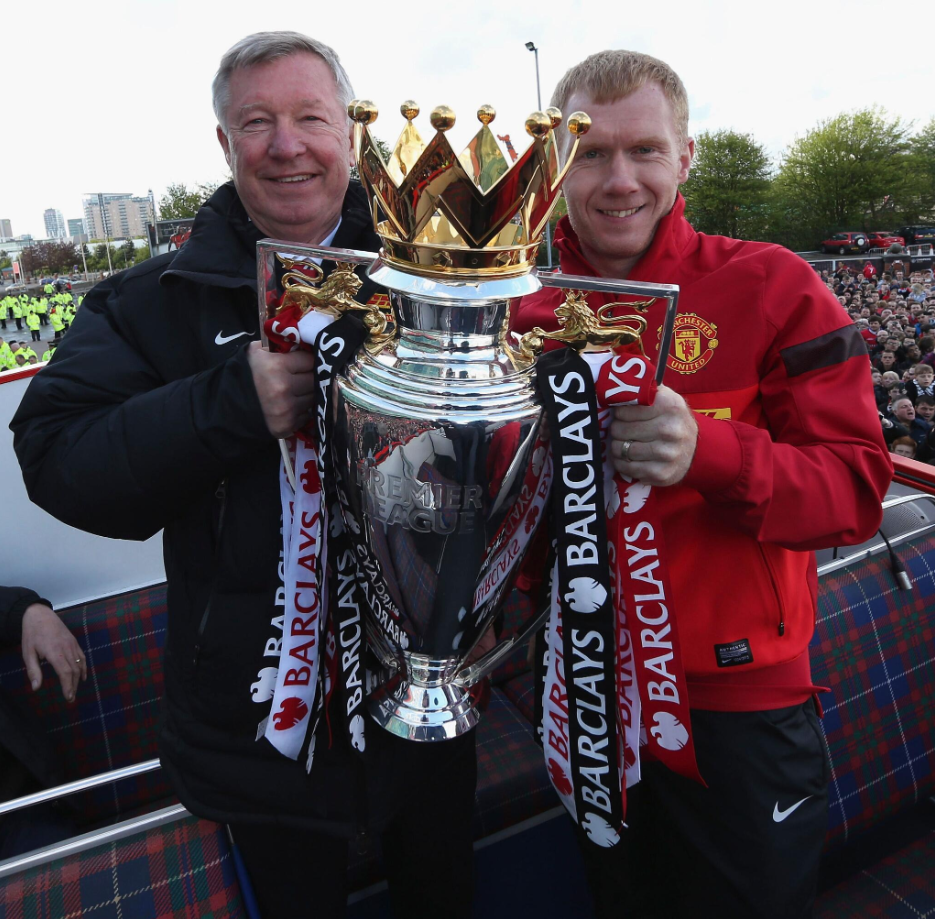 |
Paul Scholes (right) and manager Alex Ferguson during the Premier League title parade in 2013 - the last time Man Utd won the league. Photo: EPSN |
Scholes spent his entire career at Man Utd from 1993 to 2013, scoring 155 goals in 718 appearances, winning 11 Premier League titles and two Champions League trophies. At the international level, Scholes scored 14 goals in 66 appearances for England.
Scholes recalled a time when he was forced to become a deep-lying playmaker under Alex Ferguson, rather than enjoying the free-roaming attacking role he had earlier in his career. Despite his success in this deeper position, Scholes admits he never truly enjoyed being restricted to a more defensive, controlled role.
However, Scholes doesn't want Fernandes to follow the same path, emphasizing that the Portuguese midfielder needs to play further up the pitch to deliver his decisive passes. "That's how Man Utd used to play, with progressive passing, attacking football, entertaining the fans. I hated having to pass backwards, and I hate seeing it now," he commented.
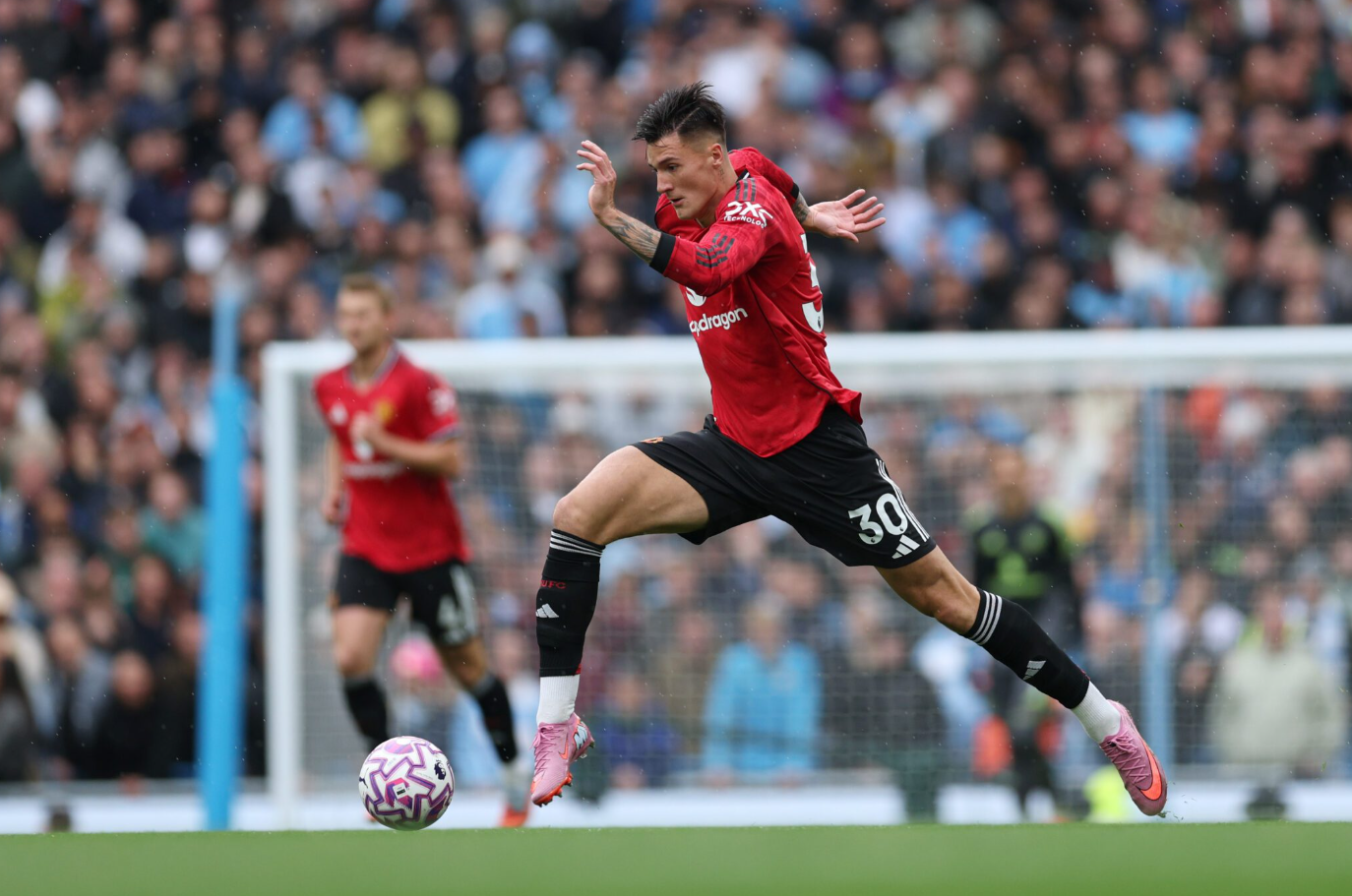 |
Scholes also expressed concerns about the expectations surrounding new signing Benjamin Sesko, a striker who hasn't scored yet and is feared to be following in Rasmus Hojlund's footsteps at Old Trafford. He also suggested that Man Utd should have opted for a more experienced goalkeeper like Emiliano Martinez, rather than taking risks.
When asked about Ruben Amorim, Scholes candidly stated: "I'm more hopeful than truly confident. I like the way he talks, but the current results aren't enough to inspire great confidence."
Concluding the interview, Scholes reiterated his point about Fernandes needing to return to the number 10 position. "If Fernandes continues to play deep, Man Utd will lose his most important qualities near the opponent's goal," he said.
Hong Duy (via Sky Sports)




